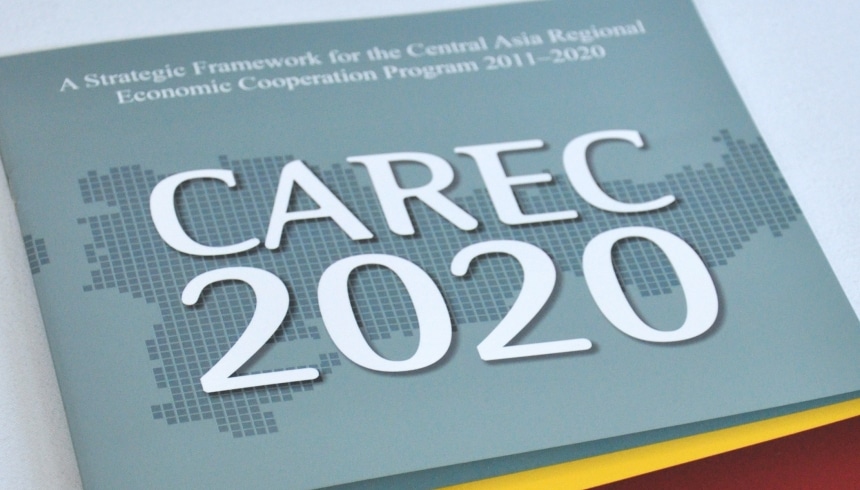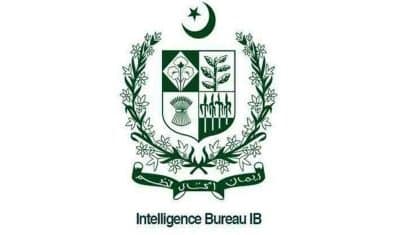Pakistan has proposed for Transit Trade Agreements (TTAs) between the member countries of the Central Asia Regional Economic Cooperation (CAREC) leading to the Regional Free Trade Agreement (RFTA) to expand trade between them.
The Federal Minister for Economic Affairs, Makhdum Khusro Bakhtyar, participated in the virtual 19th Ministerial Conference of the CAREC, and the ministers and senior representatives of Afghanistan, Azerbaijan, China, Georgia, Kazakhstan, the Kyrgyz Republic, Pakistan, Mongolia, Tajikistan, Turkmenistan, and Uzbekistan also took part in it.
ALSO READ
Pakistan to Continue its GSP Plus Facility After Brexit
Khusro Bakhtyar highlighted the significance of regional cooperation like through CAREC for Pakistan in achieving the shared goals of sustainable development and economic growth. He also reiterated the importance of regional connectivity through road networks, railways, aviation, and ports in unleashing the trade and tourism potential of the region.
While endorsing the framework, he emphasized that by setting specific, measurable, attainable, relevant, and time-bound (SMART) targets with active monitoring and annual reporting, the members could effectively monitor the progress leading to the implementation of CAREC’s Vision 2030.
The minister also remarked that tourism is a part of the National Development Policy of the Government of Pakistan and that the sector contains immense untapped potential. He suggested the development of a regional tourism corridor, the establishment of a CAREC Business Council, and the increased involvement of the private sector in promoting tourism while highlighting the incumbent government’s focus on facilitating the private sector for increased investment.
The minister also suggested the creation of an enhanced visa facilitation regime in the form of a “CAREC Sticker” for certain categories within the region. He stated that in order to expand trade between the CAREC countries, Transit Trade Agreements between member countries leading to the Regional Free Trade Agreement (RFTA) may be considered.
Minister Bakhtyar endorsed CAREC’s long-term strategies to promote regional tourism and gender mainstreaming.
Furthermore, the CAREC enables its member countries to share their views and provide input for the long-term strategic frameworks to achieve their envisaged regional cooperation goals.
Minister Bakhtyar also suggested that the CAREC should conduct comprehensive studies to identify the underlying gaps and include roadmaps on mutually beneficial topics.
“Pakistan attaches high importance to the CAREC as it is aligned with our national priorities of regional integration and cooperation,” he said.
According to an official statement by the Asian Development Bank (ADB), the rapid digitalization and leveraging of the private sector can support its recovery from the coronavirus pandemic, accelerate regional cooperation, drive innovation, and help countries to adapt to new and evolving forms of globalization.
“As the world emerges from the pandemic, we must revive our regional cooperation efforts with a spirit of open regionalism to enable the CAREC to seize the opportunities of renewed globalization,” said the ADB President Masatsugu Asakawa in his keynote address.
“This means expanding connectivity, rejuvenating trade, and embracing innovation and technology in ways that put the people of the CAREC region at its center,” he explained.
Asakawa added, “There is a huge potential for adopting technologies that improve the monitoring of cross-border health threats, enable the use of telemedicine and online education, and raise food safety standards while the private sector can play a crucial role as a driver of innovation”.
The virtual event, under the theme “People-Centered Regional Cooperation in the Post-COVID Environment”, was attended by President Mohammad Ashraf Ghani of Afghanistan, ministers and senior officials from the eleven CAREC countries, and the representatives of its development partners.
While the event was hosted by the Government of Afghanistan, it was chaired by the Afghanistani Minister for Finance, Abdul Hadi Arghandiwal, and was co-chaired by the ADB Vice-President, Shixin Chen.
“Regional connectivity is one of the top priorities of our economic development agenda,” said President Ghani in his special address.
“The CAREC platform can help us fully integrate the infrastructure, systems, and programs, and share our common cultural values. The CAREC program is a proactive facilitator of practical, results-based regional projects, and policy initiatives critical to sustainable economic growth and shared prosperity in the region,” he announced.
While delivering his special message, President Ghani praised Prime Minister Imran Khan’s recent visit to Kabul. He termed the visit ‘an important milestone in strengthening bilateral ties and enhancing prospects for regional cooperation and integration’.
The CAREC program is a partnership of eleven countries and six development partners working together to promote development through cooperation leading to accelerated economic growth and poverty reduction. It is guided by the overarching vision of “Good Neighbors, Good Partners, and Good Prospects”.
As a high-level strategy and policy body, the CAREC is a partnership for its members to promote economic growth and sustainable development through cooperation. Since its inception in 2001, the program has financed 208 regional infrastructure and trade projects worth $39.2 billion.
These projects have helped increase road and railway efficiency, streamline border-crossings and improve access to energy for millions of people in the region. Of the total, $14.7 billion has been financed by the ADB, $15.8 billion by other development partners, and $8.7 billion by the governments of CARE’s members.
The CAREC ministers have unanimously endorsed two new long-term strategies: a tourism strategy to develop safe and sustainable tourism destinations and provide jobs in the CAREC countries, and a gender strategy to improve access to economic opportunities for women and to empower them in decision-making processes.
In a joint statement, the ministers commended the CAREC’s efforts to address the challenges posed by the pandemic and reaffirmed their commitment to regional cooperation and their support for the CAREC’s Strategy 2030. The ministers also noted substantial progress in the CAREC’s five priority areas, welcomed the forthcoming digital strategy to integrate information and communication technology into each priority area and highlighted the continued financial and technical support of its development partners.
The investments in the CAREC region in 2020 have further strengthened regional connectivity, including a new project to expand energy trade between Afghanistan and Uzbekistan, and have provided 500,000 households and businesses with reliable access to electricity.
The program has also completed a study on regional health cooperation, identifying opportunities to mitigate the spread of diseases, and improved health services for migrants and border communities.
“The CAREC region is home to a wide range of historical and cultural heritage sites, unique gastronomy and local traditions, a rich, unexplored network of cities, and arresting natural endowments that traverse national boundaries,” said the ADB Vice-President Shixin Chen.
He added, “Through the gradual implementation of regional initiatives, the CAREC Tourism Strategy 2030 will help the region bounce back from COVID-19 and establish itself as a sustainable, safe, and easily accessible tourism destination over the long term”.
ALSO READ
Pakistan Set to Receive $873 Million Relief Package From Paris Club
In 2019, the CAREC countries generated more than 420 million domestic tourists but only received 41 million foreign tourists. With the COVID-19 pandemic severely affecting global tourism in 2020, the CAREC Tourism Strategy 2030 accounts for the shift in travelers’ preference FOR closer, safer, and uncrowded destinations while outlining a long-term plan to develop the region as an easily accessible tourism destination that provides visitors with a variety of unique experiences.
The strategy provides a roadmap for the enhancement of the region’s connectivity through the harmonization of visa requirements and quality standards, the simplification of border crossing procedures, and the improvement of tourism infrastructure and facilities.
It also focuses on tourism skills development while maximizing the use of digital technologies, and aims to build a common brand called ‘Visit Silk Road’ through the creation of a CAREC tourism web portal and joint promotional activities for tour operators and other business providers.
Additionally, it seeks to develop unique tourism products and experiences catering to various segments including business, culture, nature and adventure, sun and beach holidays, health and wellness, and domestic weekenders.
“By fostering sustainable tourism growth in rural and urban areas, the new strategy will also help to reduce regional imbalances and empower local communities,” said the ADB Director General for Central and West Asia, Werner Liepach.
“It will promote gender equality by promoting jobs and income opportunities for private sector SMEs and entrepreneurs including women and young people,” he added
The senior representatives of the ADB, the International Monetary Fund (IMF), the World Bank (WB), the Asian Infrastructure Investment Bank (AIIB), the Islamic Development Bank (IDB), the European Bank for Reconstruction and Development (EBRD), the European Investment Bank (EIB), the OPEC Fund for International Development (OFID), the United States Agency for International Development (USAID), the United Nation (UN) agencies, the World Trade Organization (WTO), and the Japan International Cooperation Agency (JICA) also attended the conference.

























